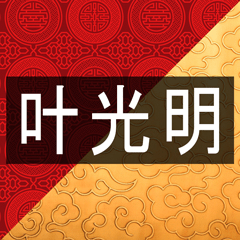
Political Loyalty Or Biblical Christianity?
There has been considerable discussion regarding the exact meaning of the Chinese Communist Party's plan to “sinicize Christianity.” The word (漢化 or 中國化) originally means “to make Chinese in character or form.” Finding out what the word means in China today is important because the 2023-2027 five-year plan of the Three Self Patriotic Movement (TSPM) and the China Christian Council (CCC) states that sinicization is a core policy for Christianity in China.
Recent meetings under the leadership of the United Work Front, the body with overall responsibility for religion in China, have now given a much clearer definition. In short, the policy is to remove the Bible from church pulpits and replace it with mandatory teaching based on the utterances and policies of the Chinese Communist Party. “This should be done via a theology with ‘Chinese characteristics’. This is a well-used phrase by Xi Jinping and can be seen as a gateway for introducing Communist political values into theology” (Thomas Muller).
Professor Carsten Vala of Loyola University said regarding the 2023-2027 plan that “the most important conclusion is that the TSPM/CCC now lays far greater emphasis on political loyalty to the Chinese Communist Party and comparatively weaker emphasis on traditional Christian ideas.” He also states: “In more than 20 years of studying the church in China, this is the closest that I’ve seen to the rewriting the Bible or changing traditional theological concepts. In fact, such efforts are actually taking place.”
In June 2024 a national seminar on sinicization of religion was held supervised by the United Front Work Department, stressing that “the control on local communities, pastors, and sermons should be tighter than before.” Church leaders “should acknowledge that their efforts have not been completely successful in the past and that a ‘strict governance’ including the direct supervision and control of the United Front and the Chinese Communist Party (CCP) should be introduced.”
Following that gathering “a national pilot training was held in Guangzhou on July 8–12, which was followed in August by training events at the provincial level. The Guangzhou meeting gathered one hundred leading Christian pastors from significant churches nationwide. They were informed that “pastors should cooperate at the local level with CCP and United front officials. The United Front representatives admitted that so far not much has changed in most Three-Self churches. Therefore their direct and firm intervention is now required.”
Professor Carsten Vala commented that “if Protestant churches more and more ‘toe the Party line’, their distinctiveness to members of society who are not affiliated with the churches will wane, weakening the attraction of the Christian faith. And, perhaps, this has been Xi Jinping’s vision for a sinicized Christianity all along.” Muller adds that “it is good to keep in mind that in socialist ideology, religion is seen as ‘opium for the people’ and it would therefore be good to get rid of religion. This can be done by violent means, but also by strict measures to force religions to adapt and make them in effect meaningless. This seems to be the path the Communist Party wants to follow in China.”
Pray for the church in China as it faces this replacing of Biblical truth with Communist ideology.
Pray for pastors and preachers who face some very difficult choices.
Claim the promise of the Lord Jesus for His people in China: “I give eternal life to them, and they will never perish; and no one will snatch them out of My hand” (John 10:28).
Source: Zhang Chunhua and Open Doors.

